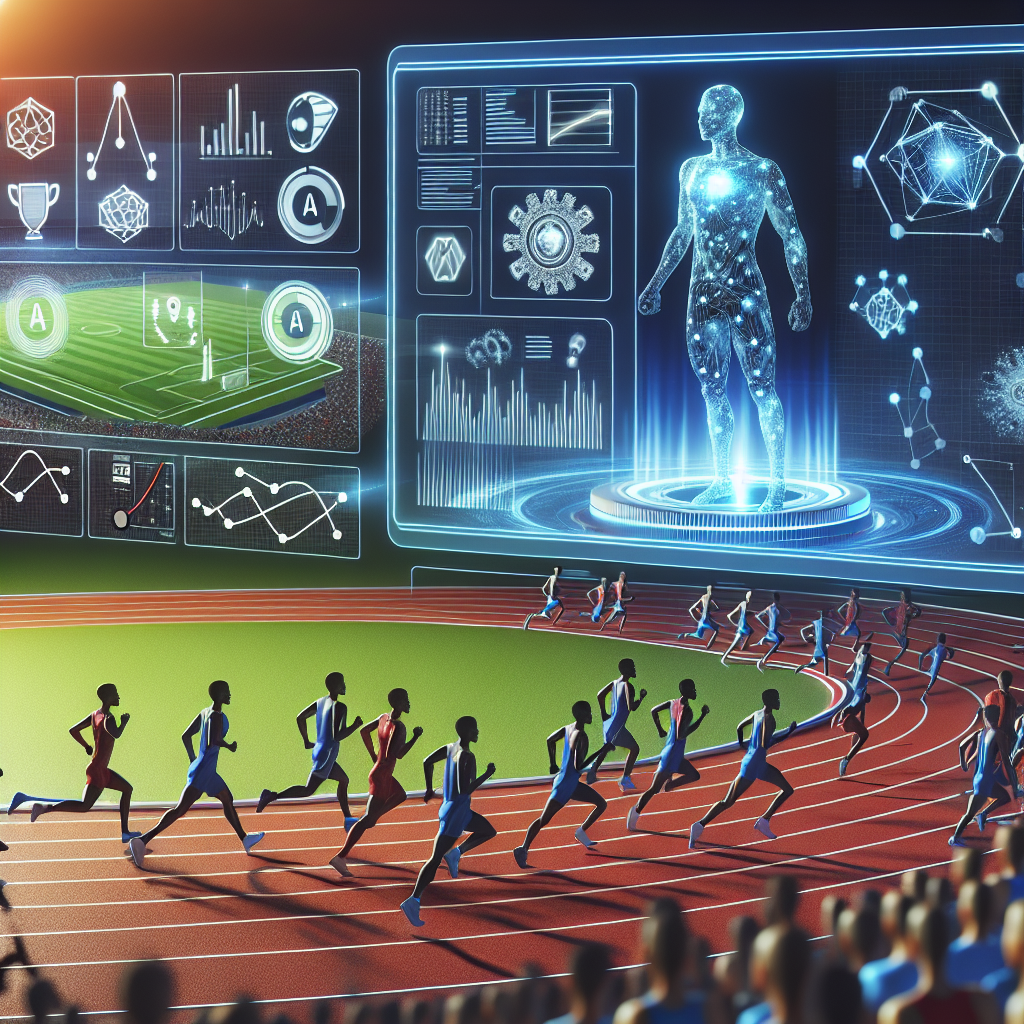The use of artificial intelligence (AI) in sports has been on the rise in recent years, with many teams and athletes turning to AI technology to enhance their performance and gain a competitive edge. One area where AI is playing a significant role is in sports performance testing. By using AI algorithms and machine learning techniques, sports scientists and trainers are able to collect and analyze vast amounts of data to assess an athlete’s strengths and weaknesses, identify areas for improvement, and optimize training programs.
One of the key benefits of using AI in sports performance testing is its ability to provide real-time feedback and insights. Traditional performance testing methods often rely on subjective observations or manual measurements, which can be time-consuming and prone to human error. AI technology, on the other hand, can process data quickly and accurately, allowing coaches and trainers to make data-driven decisions on the spot.
AI can also help to personalize training programs for individual athletes. By analyzing an athlete’s performance data, AI algorithms can identify patterns and trends that may not be immediately apparent to human observers. This information can be used to tailor training regimens to address specific weaknesses or capitalize on strengths, leading to more efficient and effective workouts.
Furthermore, AI can help to predict and prevent injuries by analyzing an athlete’s movement patterns and biomechanics. By monitoring an athlete’s performance over time, AI algorithms can identify changes or abnormalities that may indicate an increased risk of injury. Coaches and trainers can then intervene proactively to address these issues before they become serious.
Another advantage of using AI in sports performance testing is its scalability. AI technology can process large volumes of data from multiple sources, allowing coaches and trainers to track the progress of multiple athletes simultaneously. This can be particularly useful for teams or organizations with large rosters, as it enables them to efficiently monitor and manage the performance of all their athletes.
In addition to enhancing sports performance testing, AI technology can also be used to improve the fan experience. By analyzing data from live broadcasts or social media, AI algorithms can provide insights into fan engagement and preferences, helping teams and leagues to better understand their audience and tailor their marketing strategies accordingly.
Overall, the use of AI in sports performance testing has the potential to revolutionize the way athletes train and compete. By harnessing the power of AI technology, coaches and trainers can gain valuable insights into their athletes’ performance, optimize training programs, and maximize their potential for success.
FAQs:
Q: How does AI technology collect and analyze data in sports performance testing?
A: AI technology can collect data from a variety of sources, including wearable devices, video analysis, and motion sensors. This data is then processed using AI algorithms and machine learning techniques to identify patterns and trends that can inform training programs and performance evaluations.
Q: Can AI technology replace human coaches and trainers?
A: While AI technology can provide valuable insights and assistance in sports performance testing, it is not intended to replace human coaches and trainers. Instead, AI should be seen as a tool to enhance and support the work of human professionals, helping them to make more informed decisions and optimize their training programs.
Q: Is AI technology accessible to amateur athletes?
A: While AI technology is becoming increasingly common in professional sports, it is also becoming more accessible to amateur athletes. There are a growing number of companies and platforms that offer AI-based performance testing tools and services for athletes of all levels.
Q: How can athletes benefit from using AI in sports performance testing?
A: Athletes can benefit from using AI in sports performance testing in a number of ways, including personalized training programs, injury prevention, and real-time feedback. By leveraging AI technology, athletes can optimize their training regimens, improve their performance, and reach their full potential.

